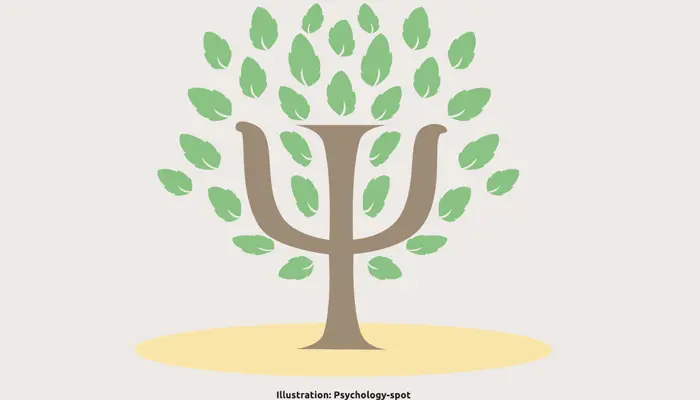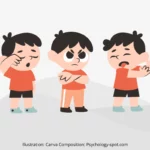
In troubled times when opinions are polarizing and tension is palpable in the environment, offenses have practically become the only weapon that some people wield to “defend” their arguments. As a result, the feeling of offense grows generating a wave of resentment.
However, the truth is that the offenses are not only due to direct attacks nor are they a modern phenomenon. They can also come from people close to us who may not have meant to offend us. Like that time when the boss made a bad taste joke about our work. Or when someone gave us their honest opinion about our new haircut. Or when someone criticized our parenting style or our lifestyle… There are as many reasons to be offended as there are people.
Understanding the concept of offense in Psychology
The offense is nothing more than a feeling caused by a blow to a person’s honor, which contradicts his self-concept and the image he has of himself. The person feels offended when believes that someone has said or done something that goes against his most important norms and/or the core values.
In fact, feeling offended belongs to what are known as “self-conscious emotions”, so it shares networks with shame, guilt and pride. Like these emotions, the offense occurs due to an attack that we consider personal and that somehow calls into question our ego.
In 1976, psychologist Wolfgang Zander attempted to explain the psychological process that gives rise to offense. At first, we look for the possible causes of the offense and try to make sense of them. In a second moment, we value the intensity of the offense taking into account the emotional reactions it has generated and we analyze whether or not the offender shares our beliefs. Finally, in a third moment, we decide how to react.
Of course, many times these phases occur rapidly and overlap so that it is sometimes difficult to exercise a conscious control over them. Sometimes we just automatically react to what we consider to be an offense by getting angry and attacking the person. However, there is another possibility beyond just reacting when punctured.
Why do we get offended?
The reasons why we are offended are multiple. An experiment conducted at the University of Michigan revealed the complexity behind offenses. The psychologists asked an actor to bump into the participants in the study and call them “assholes”. They found that northern men in the United States were largely unaffected by the insult, but southerners took it to heart.
Their cortisol and testosterone levels increased, they reported feeling upset and more willing to respond aggressively. The psychologists concluded that in cultures where reputation, honor and masculinity are important values to uphold, men are more likely to feel offended and react with hostility to what they consider to be an insult.
Without a doubt, feeling offended is a complex emotional state in which intervene personal factors, but also internal or external causal attributions, as well as relational factors that influence our interpretation of what has happened and that determine, to a certain extent, not only whether we feel offended but the magnitude of that feeling and the proportionality of the response.
In general, the main factors that mediate the offensive response are:
• Importance of the relationship. The more important the type of relationship we have with the offender, the more intense the feeling of offense will be. For example, if our boss says something negative to us, we will react more intensely than if that comment is made by an unknown co-worker. A person’s level of authority in our lives also plays a role, which could explain why we tend to feel less offended by the comments or behaviors of those we perceive as our equals, such as friends.
• Previous experiences. Experiences are one of the main reasons people get offended. Experiences shape our personality and condition our way of thinking and responding to circumstances, often without being fully aware of it. Therefore, if we have had previous negative experiences with a person, we may have a tendency to interpret any interaction with that person in a negative way and feel offended.
• Level of personal security. If a person has a strong self-concept, he is less likely to take offense. The most confident people do not allow others to undermine their self-esteem or give up their control. In fact, self-esteem plays a crucial role in the feeling of offense since it can trigger relevant emotions such as shame and pride. If we have low or artificially high self-esteem, we are more likely to become touchy-feely people getting offended at everything.
• Social and cultural pressure. The society and culture to which we belong and in which we live also have certain expectations. They convey to us ways of behaving and ways of responding that are considered appropriate or inappropriate, offensive or harmless, according to shared values and moral norms. For that reason, there are words and behaviors that are considered “offensive” and it is expected that if we are targeted by them, we will defend ourselves.
That means that, culturally, there are recognized “offenses” and behaviors that are considered offensive and undesirable. When we are victims of such offenses, we are validated by society and culture to feel offended and inferior in terms of perceived control, which immediately translates into a need to restore our sense of power. That is why we react by becoming defensive or attacking those who have offended us.
However, we always have the possibility to choose. The offense is half of the one who utters it and half of the one who gets offended.
We have a choice: we can take or ignore the alleged offense. To do this, we can see it as if it were an “unwanted gift”. We have the option to take the offense, let the offender hurt our ego and get angry, irritated and lose control. Or, on the contrary, we can learn to shield our self-esteem. Free our feelings from the yoke of what others think and say. And decide not to be offended because, in the end, offenses usually say more about the offender than of the alleged offended party. This way you can stop caring about what people are thinking of you and you will return the blow of sarcasm or hostility to the person who generated it.
Sources:
Poggi, I., & D’Errico, F. (2018) Feeling offended: A blow to our image and our social relationships. Frontiers in Psychology; 8: 1-16.
Cohen, D. et. Al. (1996) Insult, aggression, and the southern culture of honor: An «experimental ethnography. Journal of Personality and Social Psychology; 70(5): 945–960.
Zander, W. (1976). Taking offence as seen in depth-psychology. Psychother. Med. Psychol; 26: 1–9.



